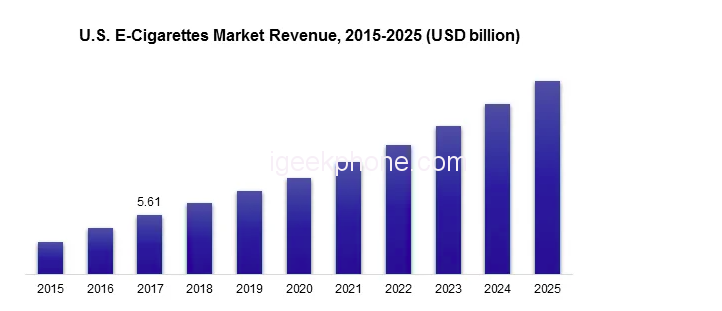At present, electronic cigarettes (e-cigarettes) have become a global phenomenon, with their popularity spreading across many countries and regions. However, different nations have adopted varying levels of control measures to regulate the sale, production, and import of these devices. While some countries and regions have outright banned e-cigarettes, others have implemented restrictions and regulations to supervise their usage. It is important to understand the diverse approaches taken by different nations to ensure compliance with local laws. Here are some examples of countries and territories that have prohibited vaping:
Brazil: In 2019, Brazil implemented a comprehensive ban on the sale, manufacture, and import of e-cigarettes. This measure was taken to protect public health and curb the increasing use of these devices.
Argentina: Since 2011, the sale, manufacture, and import of e-cigarettes have been strictly prohibited in Argentina. This decision was made to safeguard public health and prevent the potential risks associated with e-cigarette use.
Singapore: Singapore has also implemented a ban on the sale, manufacture, and import of e-cigarettes since 2018. The government of Singapore has taken a proactive stance to discourage vaping and protect its population from the potential health hazards.
India: India joined the list of countries banning e-cigarettes in 2019. With the goal of safeguarding public health, the Indian government decided to prohibit the sale, manufacture, and import of these devices.
Thailand: Thailand has been at the forefront of countries with a ban on e-cigarettes since 2014. The sale and import of e-cigarettes are strictly prohibited in the country, reflecting the government’s commitment to public health and preventing the potential risks associated with vaping.
It is worth mentioning that in addition to outright bans, some countries and regions have opted for regulating and supervising e-cigarettes rather than completely prohibiting them. The European Union, the United States, Canada, Australia, South Korea, Japan, and many others fall into this category. The control measures implemented by these nations include age restrictions on sales, limitations on advertising, and guidelines on product labeling and packaging. However, it is important to note that e-cigarette regulations are dynamic and subject to change. Before traveling to a specific destination, it is advisable to stay informed about the relevant regulations to ensure compliance with local laws.
One of the primary reasons for the Chinese government’s ban on fruit-flavored e-cigarettes is the protection of minors’ health. Fruit flavors tend to be more appealing to young people, increasing the risk of underage smoking initiation. Moreover, fruit-flavored e-cigarettes may create the misconception that they are a healthier alternative, thereby promoting a higher uptake of vaping. In light of these concerns, the Chinese government has prohibited fruit-flavored e-cigarettes to safeguard the health of minors and prevent the potential abuse of these products. Similarly, other countries and regions have also taken similar measures to protect public health and address the specific risks associated with flavored e-cigarettes.
In conclusion, various countries and territories have implemented different approaches to control and regulate e-cigarettes. While some have implemented bans on their sale, manufacture, and import, others have opted for regulatory measures. The motivations behind these actions primarily revolve around protecting public health, curbing underage smoking initiation, and preventing potential risks associated with vaping. It is crucial for individuals to familiarize themselves with the regulations of their destination concerning e-cigarettes to ensure compliance and to contribute to the promotion of responsible vaping practices worldwide.
Read Also: Wet E-Cigarette Rescue: A Step-by-Step Guide and How to Fix
Do not forget to follow us on our Facebook group and page to keep you always aware of the latest advances, News, Updates, review, and giveaway on smartphones, tablets, gadgets, and more from the technology world of the future.









